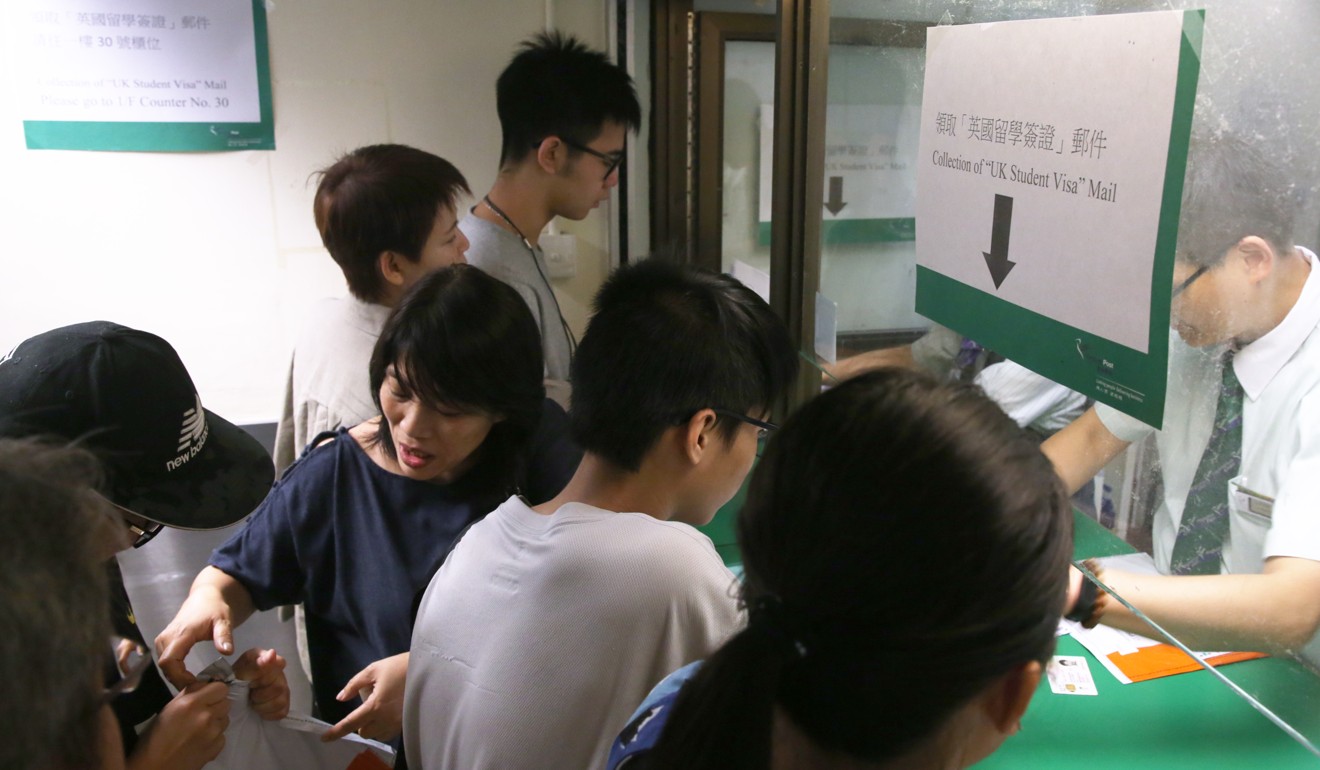
Hongkongers set to benefit as UK universities push for two-year visa for international students
Number of those from city studying in Britain up recently amid fears country could face brain drain over Brexit
British universities lobbying their officials to reinstate a two-year visa for international students to stay on and work after graduation there have made a strong case likely to win backing, a former UK government adviser has said.
University of Essex vice-chancellor Professor Anthony Forster, who visited Hong Kong two weeks ago with university chancellor and Britain’s speaker of the House of Commons John Bercow, said: “I’m optimistic the government will recognise the strength of the case.
“In terms of the economic case, [there is the] benefit that our companies get by having international students working within them, and how attractive [the plan] will be for students thinking which country they might want to study abroad in.”
Forster was referring to the call by Universities UK – the sector’s umbrella advocacy body that counts 137 universities as members – to ensure Britain continues to retain its appeal for foreign students.

Forster was a member of an advisory committee on student matters for the Higher Education Funding Council for England before the council was replaced this year by the UK Research and Innovation and Office for Students.
The move would benefit Hongkongers as Britain has traditionally been among the top overseas destinations for those from the city seeking tertiary education.
According to the country’s Higher Education Statistics Agency, 16,370 Hong Kong students enrolled in undergraduate and postgraduate programmes in Britain in 2016/17, compared with 11,020 in 2011/12.
Britain demands explanation over denial of journalist’s visa renewal
Forster said Essex had recently seen an increase in students from Hong Kong, with the number surging the last academic year to 182from eight in 2000/01.
Currently, bachelor’s or master’s degree students wishing to stay in Britain after graduating there must find a job offering a salary of at least HK$212,000 (US$27,000) within four months of completing their course, or find sponsorship as an entrepreneur.

PhD students are able to stay for up to 12 months following the completion of their degree.
Stanford University pledges ‘equity of access’ amid Chinese visa fears
“We need to make sure that we remain competitive and that the UK is the destination of choice,” Forster said.
Under the proposed visa, British universities would be able to act as their graduates’ sponsor and there would be no restrictions on job level or salary, nor would an employer sponsorship be required.
The UK needs an ambitious immigration policy that helps boost our regional and global competitiveness
In 2012, the government scrapped a post-study work visa that had allowed international students to stay and work for up to two years after graduation.
Business organisations and UK universities minister Sam Gyimah have signalled their support for the new plan.
Professor Dame Janet Beer, president of Universities UK and vice-chancellor of the University of Liverpool, said last month the new visa would “send a more welcoming message to international students and signal that the UK is open to talented individuals from around the world”.
“As Brexit discussions continue, the UK needs an ambitious immigration policy that helps boost our regional and global competitiveness,” she added.
Angus Tang Chi-wing, director of HKIES, an education consultancy based in the city, said more local students were looking for an opportunity to work in Britain after graduation. Tang said staying on to work in the country appealed to many because of its slower pace of life compared to Hong Kong and its more spacious living environment.
The difficulty of getting a working visa discouraged many employers from “proceeding” with work applications, he added.
During their trip, Forster and Bercow met with Essex alumni at The China Club in Central to discuss higher education and the future relationship between the Hong Kong, Britain, and China.
The emotional downside to studying in the UK for Chinese
While historically the focus on Hong Kong and China has been on recruitment, Forster said Essex wanted also to look at other collaborations such as in research.
“The quality of research now undertaken by Hong Kong and Chinese universities is some of the best that is taking place in the world.”
Forster said an MSc degree in entrepreneurship and innovation with HKU SPACE was now in the works, targeting a starting date of 2019. The British university is also in early talks with Lingnan University to collaborate on a sport science programme.
Bercow said Essex’s mindset had always been international with 140 nationalities on its campuses but that the Brexit referendum results two years ago spurred it to look into more global partnerships.

